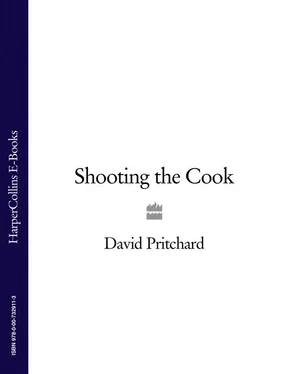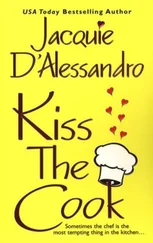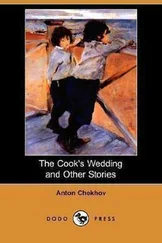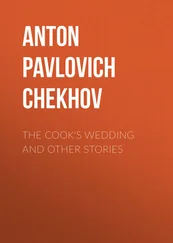After an hour or so we’d filmed everything we needed and I thought it would be a good idea to visit the famous oyster beds in Cancale, a short drive away to the east. I was expecting something quaint and pretty, perhaps a few ancient thatched cottages huddled alongside a creek, where gnarled old men toiled in sailing boats dredging up oysters. So I was a bit taken aback by the sight of miles and miles of flat muddy shoreline, covered, as far as the eye could see, with black sacks. On closer inspection the sacks were made out of plastic mesh and were full of baby oysters the size of thumbnails. The mesh ensured that the sea would give them the precious nutrients they needed to grow, and the sack gave them protection from seabirds and stopped them from being swept away. The tiny oysters looked like so many pieces of chipped stone, but such was their reputation that in four years or so they could be gracing the tables of the Ritz and the Savoy.
It was a scene reminiscent of an L. S. Lowry painting, dotted with matchstick figures, some of them with rakes, some driving tractors, and others bent double, sewing up sacks. There were little paths made of concrete that wove their way along the beach and down to the shoreline. In the distance we spotted a line of schoolchildren following their teacher. At first we thought, ‘What on earth are children doing in the middle of this muddy beach on a school day?’ And then we realized this was why the French are so appreciative about food; they learn about it from an early age. We traipsed along the beach with the camera equipment and sure enough the teacher told us that this group of eight-year-olds would, as part of their education, visit farms, cheese-makers, and other local producers to learn about food, where it comes from and how it is grown and reared. I thought of the children at home who thought that milk came out of bottles and fish really did have fingers.
On our return from France something happened in Bridport that changed things for ever. It was here that Floyd found the person he really wanted to be on television; the persona that the technicians at Plymouth had pronounced crap, and that John Purdie had predicted was destined for stardom.
During the morning we’d been filming the scallop boats returning to the narrow harbour at West Bay. Nowadays this part of the Dorset coast is famous for its hand-dived scallops. Divers wearing aqualungs scour the seabed looking for scallops of the right size. It’s a great way to preserve the stock; as with line-caught fish you take what you need and leave the rest for another day. All those years ago this method of fishing was just starting in Lyme Bay, but most of the local scallop fishermen still used small trawlers to dredge for them. Someone said it was a bit like using a tractor to weed an ornamental flowerbed. The trawler scooped up everything that came before it and its heavy chains could sometimes break the shells of the scallops. It was a couple of hours or so before each dredge was brought to the surface, which meant the shellfish, along with the rocks and mud and all the rubbish from the seabed, were tossed around as if they were in some infernal washing machine.
That afternoon we had planned to film Keith cooking king scallops in a pub, The George, in the centre of Bridport, which was very popular because they served really good coffee, freshly squeezed orange juice, and fabulous steak and chips. The problem was they were so busy we couldn’t get into the kitchen because the staff were still bustling around preparing lunches. We would have to wait, so maybe it would be a good idea to have a pint or a glass of wine or two.
Julie, Keith’s wife, had joined us, keen to see how her husband was coping in his new role as a television chef. She looked perturbed when another bottle of wine turned up, but when it came time to film, Keith seemed on sparkling form, having had just the right amount of alcohol to soothe his nerves and sharpen his wits—a delicate balancing act. He began by opening the scallops and cleaning them and went on to sauté them in butter with wine, garlic and parsley.
Then, in a seminal moment he said to the cameraman, ‘Why are you looking at me when you should be looking in the pot?’ Like an obedient dog the camera went jerkily over to the pan where the scallops were frying gently. ‘Look,’ he commanded. ‘Back over to me, if you please.’ The camera creakily returned to its original shot and Floyd announced, ‘I’m not a cameraman, I’m not a director. I know nothing about making television programmes, because I’m a cook. What I do know, however, is the star of the show isn’t me. It’s the food. So go back on to the pot and don’t come up again until I tell you to!’
Julie was looking anxious. As soon as we’d finished filming she came over to me. ‘David,’ she asked. ‘Please don’t leave that bit about the camera in. It makes him look so drunk and arrogant.’
But for me Keith’s outburst was a turning point that set a style for the programme for years to come. It was funny, engaging, and different, like one of those moments in a play when the actor tells the audience what they really think of the other characters. My favourite film for years and years was Tom Jones , with Albert Finney in the title role. I loved the way he’d turn to the camera and share a few thoughts with the cinema audience before the action moved on. Keith telling Clive, the cameraman, exactly what to point at made the scene so much more personal and immediate, and it turned Clive into a household name. ‘Over here, Clive. Come up to me, Clive. Over there, Clive…’ became a hallmark of the show. What Floyd had done, in fact, was make the audience become more involved, because he wasn’t just directing the camera, he was directing the viewer’s eye on to what was important. It was something new, something that you could never have orchestrated. It was just Floyd’s inimitable style. And actually, it was very useful, too, since in those early days I still hadn’t quite worked out how to cover the entire cooking process with just one camera. It all chimed perfectly with the foremost maxim in the world, which is: ‘The simple things are the best.’
PART II
Food plays such a huge part of my life; it dominates my work and, at the risk of sounding tedious, quite a bit of my conversation. In fact, I don’t think I’ve got any friends who aren’t interested in food. They say that the average male thinks about sex every four minutes, well I reckon I think about food—and occasionally sex—every four minutes. I’ll drift off and think about pies, the kind of rabbit pies with mustard that my mother used to make shortly after the war. In the Seventies, when television executives started to discuss the possibilities of breakfast television, I thought at first it was going to be a series about people cooking breakfasts around the world. I was quite disappointed when it turned out to be a daily news magazine.
But back then my knowledge of food was limited. I hadn’t lived in a little town in Provence and, unlike Keith, I had learnt about things like salamis, olives, bread, and wine from choosing and trying stuff from the aisles and counters of the new Carrefour supermarket which had opened up in Bristol. Because I enjoyed cooking so much my friends thought me quite sophisticated, but until then I had never smelt a truffle, let alone eaten one. Caviar was a complete mystery to me and I thought sweetbreads were bull’s testicles.
One of the things we shared from our childhood, though, was a love of catching fish, mainly trout, and cooking it in the fresh air: Keith, as a young boy, growing up in Somerset, fishing on a reservoir near Wiveliscombe, and me, with my friends, Bob Lipscombe and his brother Michael, fishing on parts of the River Itchen that flowed from beyond Winchester to Southampton. Subconsciously, I think this was why we filmed so many cooking sequences outside. It was never really discussed; it just happened.
Читать дальше












